Mark Trowell has followed the fall and rise of Anwar Ibrahim over the decades, penning three books on the latter’s tumultuous political career.
The Australian criminal lawyer’s previous books were “Sodomy II: The Trial of Anwar Ibrahim (2012)”, “The Prosecution of Anwar Ibrahim: The Final Play (2015)” and “Anwar Returns: The Final Twist (2018)”.
Trowell has been an international observer, reporting for several organisations at criminal proceedings of famous political leaders such as the late DAP leader Karpal Singh, Sri Lankan minister Rishad Bathiudeen and Thailand’s UDD leader Jatuporn Prompan.
He also represented the interests of the Geneva-based Inter-Parliamentary Union at the criminal trials and appeals of Anwar and Sri Lanka’s General, Sarath Fonseka.
In an email interview with Malaysiakini, Trowell sheds light on the reasons for writing his latest book – “Anwar Triumphs”.
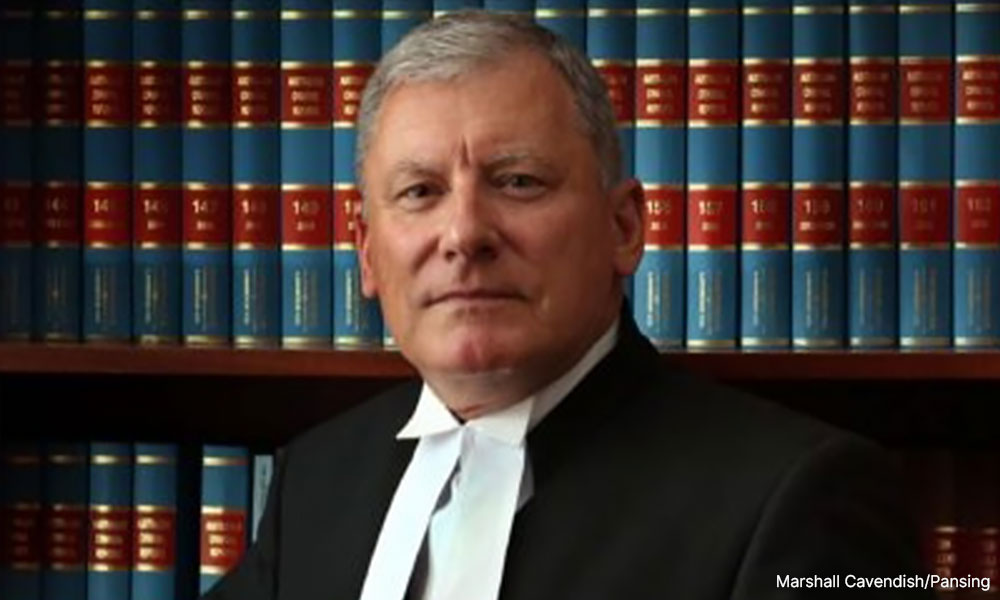
Below are excerpts from the interview:
Malaysiakini: When did work start on “Anwar Triumphs”?
Trowell: I started soon after the unity government was formed in November 2022. I tried to keep it up-to-date as best I could but ultimately it needed to be finished and printed…
The new book picks up from Anwar’s release from prison in 2018 and takes us through the formation of the unity government.
It deals with the collapse of the Pakatan Harapan coalition government following (Dr) Mahathir Mohamad’s shock resignation as prime minister in February 2020, which upended the country’s politics.
It also covers the political betrayal of Anwar, not only by Mahathir but also by former allies and the deals done to secure power, the change of prime ministers and the sensational conviction and jailing of former prime minister, Najib (Abdul) Razak for corruption.
These four years were dramatic and chaotic, yet ended with Anwar being asked by the Agong to form a unity government, which he did.
Who would have thought it possible, after all that happened to him? It was, after all, the climax of an unpredictable journey for someone whose political and legal fortunes I had observed and reported on for almost 20 years.
Considering how Anwar’s political career is full of ups and downs, is “Anwar Triumphs” an apt title?
Very apt. I chose it as a title because it neatly describes the culmination of Anwar’s roller-coaster journey and struggles against the odds.
Who could believe after so many years, several major setbacks, and spending more than 10 years in prison, that he could end up as prime minister of Malaysia?
The title wasn’t meant to not only describe him becoming prime minister but also to capture the fulfilment of the reformasi movement, which had struggled over so many years to overcome an authoritarian government that had been in power for more than 40 years.
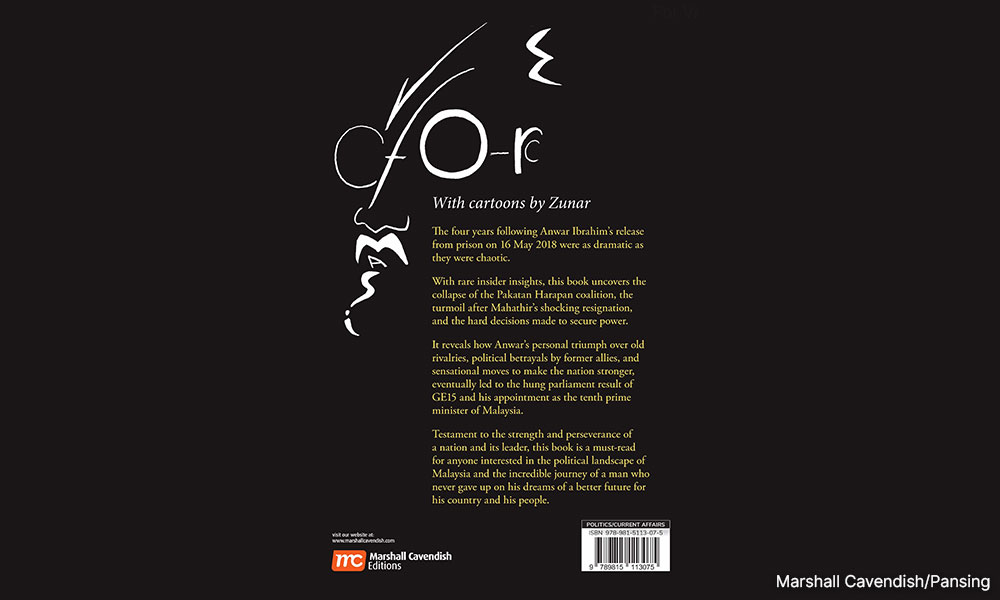
Importantly, it wasn’t only his triumph, but that of his wife (Dr) Wan Azizah (Wan Ismail), who played such a critical role in his success, which is why they are both shown on the book’s cover. It was a “triumph” for them both.
You have been following his political career as well as courtroom battles for some time. What is it about Anwar that compelled you to write four books on his trials and tribulations?
One thing followed another. The first book came about from having been an international observer at Anwar’s appeal in 2004.
The legal part interested me, because I’m a lawyer, but Anwar’s struggle offered a rare insight into Malaysia’s political life and societal tensions caused by the racial mix of its community.
There were plenty of interesting characters, some good and some bad, and there was the constant struggle for civil rights and the fight against corruption and cronyism that Anwar so encapsulated.
One struggle led to another, and so the story needed to be told and updated.
There is an extensive amount of coverage of Anwar’s sodomy trial (2012 to 2015) in this book. It also explains the royal pardon he eventually received. Why did you need to revisit this incident? What do you hope to remind readers?
People’s memories fade, and it’s important to remind them how the legal system, at the time, was weaponised against Anwar for political reasons.
It was a shameful period in Malaysia’s history that criminal charges could be brought against him on such a flimsy basis, and when properly acquitted, the judiciary scandalously convicted him against the weight of the scientific evidence.
That should never be forgotten, if only so that it doesn’t happen again.
In your interview with Anwar for this book he said the corruption now is far worse than he imagined. Yet he teamed up with politicians and parties whom he accused of corrupt practices in the past to garner enough support to form a government and become the prime minister.
Do you think this “keep your enemies close” will backfire as it did when his deputy Ahmad Zahid Hamidi received DNAA (discharge not amounting to acquittal) for his 47 corruption charges and Anwar’s foes are questioning this decision?
It’s no surprise that there was a negative reaction to the discharge of Zahid’s corruption charges.
Of course, people will say that was at Anwar’s instigation, but he says not. Is he to be believed? I don’t see why not, as there is nothing to suggest otherwise.
Does he benefit directly? Yes, he does in the sense the government is more secure, but the attorney-general has the power and discretion to discontinue charges at any time, which is what he did, and it didn’t need Anwar’s involvement for that to happen.
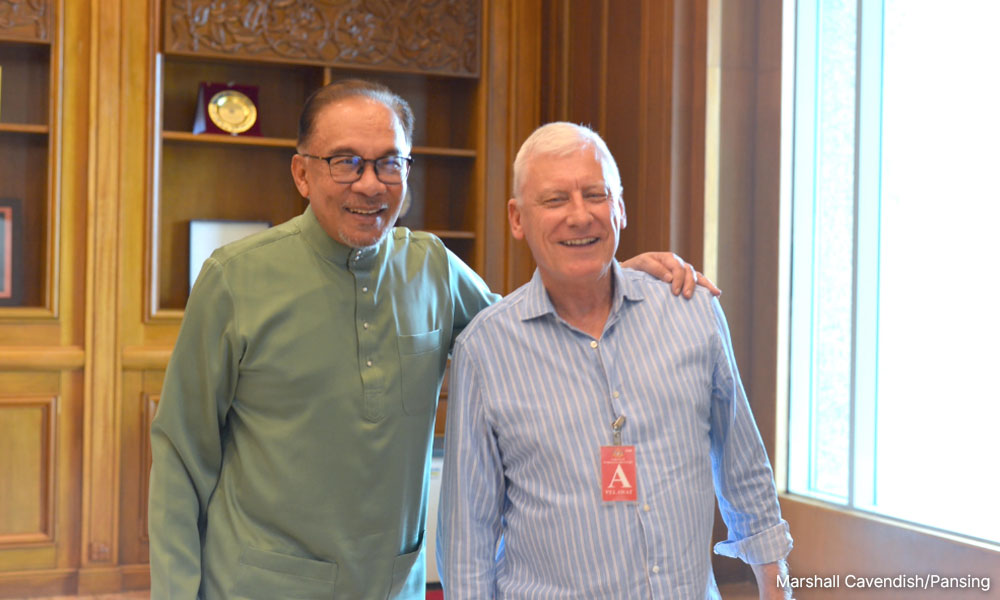
There is no doubting Anwar’s long-term commitment to fight corruption and cronyism. But politics is about the “art of the possible”, meaning there is a pragmatic side to it, and to achieve real goals, some compromises must inevitably be made.
I don’t mean corrupt compromises.
I discussed this with Anwar in our interview, which is reproduced in the book, and he was upfront about the need to compromise to form a government.
Corruption and cronyism are entrenched in Malaysia, it’s simply the way of doing business. It was rampant under Mahathir and thrived when Najib was in power.
It’s been happening for so long that the people have just come to expect it. Anwar can only do something about it if he is in power and he can’t hope to reverse it in a short space of time.
Admittedly, there are political dangers for him if he doesn’t do something about corruption and cronyism. Najib was a huge target, but others needed to face prosecution.
As I say in my book, the biggest test will be whether Najib is granted a pardon. If that happens, then Anwar’s reputation will suffer immeasurable damage and he might not survive the electoral backlash.
Sections of Umno want Najib released, but I’m not sure Zahid does. For him, it would mean being Najib’s deputy all over again, and the other factor is that Umno doesn’t have the clout it once had, particularly after its recent poor electoral results.
I am a little worried about the lack of pace of the government’s reform agenda.
There was every expectation that the government would repeal the oppressive Sedition Act, which was used so effectively to suppress dissent by opposition politicians (including the late and great Karpal Singh), students and the media.
There were also promises by Harapan to amend the Printing Presses & Publications Act, Sosma and the Official Secrets Act, which have all been used as repressive measures against dissent.
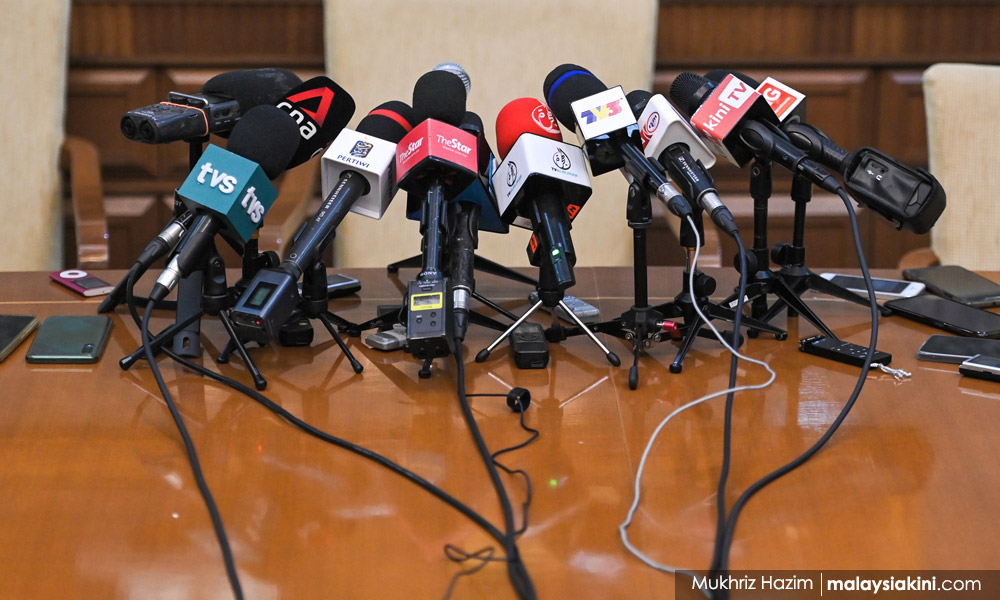
But it seems that promises of reform have vanished, which is concerning. Malaysia needs more freedom, not less. Racial harmony comes about through trust, not repression, which was always just an excuse for authoritarian rule.
We should be worried about the freedom of the press, which any government dislikes because it doesn’t fit its official narrative. We don’t want to go back to the bad old Najib days when journalists and news services were threatened or shut down.
Many people were befuddled as to why Anwar teamed up with Mahathir during the 14th general election. Your book sheds light on the deal. Also, there has been talk about toppling the current government. Do you think Anwar is better equipped to deal with something like the Sheraton Move now than he was before?
The opposition’s reliance on Mahathir is explained in the book. Anwar agreed that it should happen, but voiced his concerns about Mahathir to his allies, who with Mahathir formed a government in 2018.
His warning letter about Mahathir and the actual signed agreement between the parties to form a government is reproduced in the book.
Anwar admitted that he simply had no choice. He was still in prison, without a pardon, so what could he do? He thought Mahathir had perhaps changed and was prepared to give him the benefit of the doubt, but he was wrong.
Mahathir betrayed him, and despite publicly saying he would hand over the prime ministership to Anwar, never intended to do so.
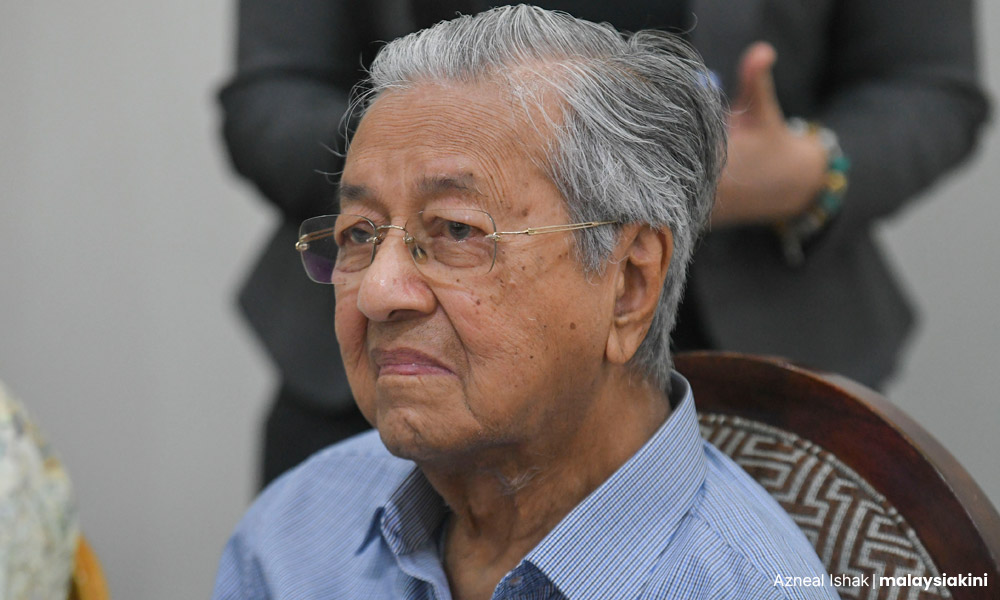
Anwar couldn’t do much more than he did with the Sheraton Move. He alone stood firm against Mahathir, while others were prepared to support him again after his resignation as prime minister, which was just a manoeuvre to block Anwar.
Anwar remarked that if Mahathir was again backed as prime minister, then the reform movement was all over, and there was no doubt about that.
By standing firm, he saved it, and although there were a few years in the wilderness, he was able to structure a unity government.
In the book, there is mention of Anwar and his family visiting the late Nelson Mandela. Did you add this little nugget because Najib's children have been comparing their father to the South African legend?
Frankly, I have never heard that Najib’s children were saying that, so my mention of Anwar’s family meeting with Mandela had nothing to do with that.
I thought Mandela’s comments about Anwar being lucky to have a family to support him were touching and gave some insight into how difficult imprisonment was for both men in a personal sense.
Anwar’s movie did not do as well as expected in local cinemas. Do you think it has to do with the timing? (People are more concerned about putting food on their plates post-Covid than a politician going to jail because he fought against corruption)
I enjoyed the movie. Of course, it was difficult to compress what was happening to Anwar and his family at that time into a few hours on the screen.
It was meant to give a personal insight into the strength of the relationship between Anwar and Wan Azizah, which has endured for so long. I think it captured that so well.
I still have the image in my mind from the movie of Wan Azizah pacing back and forth while waiting for hours outside the police station following his arrest.
You have much to say about Mahathir in the book. Despite his advanced age, he is still being used by the opposition (or he is probably using them) to further their agenda. Did you try to interview him for this book?
I don’t think Perikatan Nasional or PAS need or want Mahathir, but he is effective in stirring up racial trouble, which assists them.
Admittedly, I didn’t try to interview him, which some might fairly say was needed for balance.
I didn’t because I knew what he would say, given he had said so much publicly, and I quoted him throughout the book.
I also took the view that he was unlikely to warm to an interview, as he would know my views on a range of controversial topics, after writing three books on Anwar, none of which were favourable to Mahathir.
What about Anwar’s old allies like Azmin Ali or Tian Chua?
Both were significant figures in PKR. Sadly, neither could ultimately be loyal to the political party they had spent so much time supporting. Of course, friends fall out, it’s a common fact of life.
In politics, it happens more often as people have different ambitions or ideals that may not be realised, so they take different paths.
In the case of Tian Chua, he was expelled from PKR, but you can’t expect to be a member of a political party, and then stand as an independent candidate, which he did at the 15th general election.
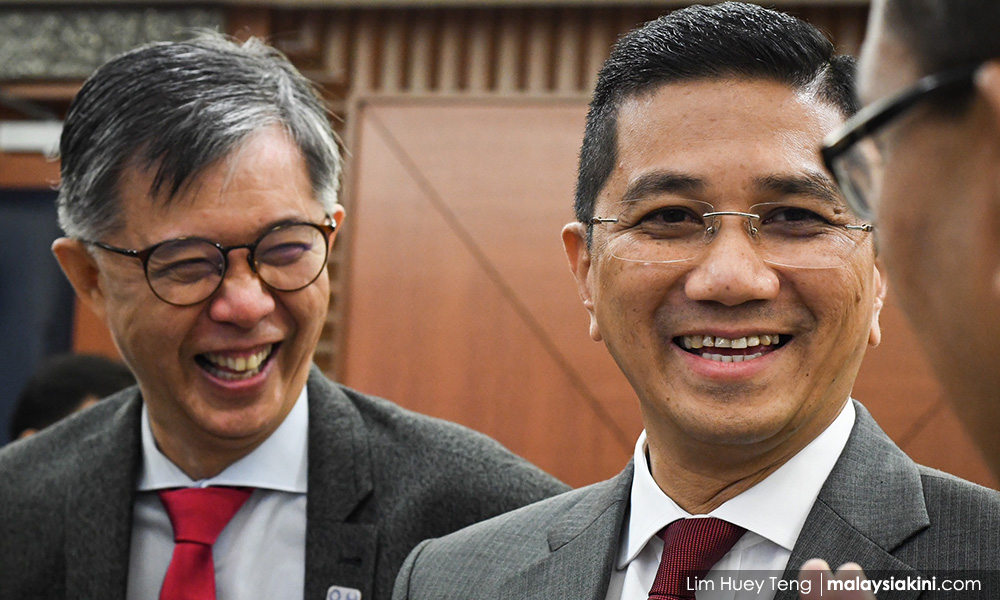
Azmin played an integral part with Muhyiddin Yassin in the Sheraton Move, which was primarily to support Mahathir against Anwar, but then they ditched him to form Perikatan Nasional. He lost his Gombak parliamentary seat in 2022.
I explored the sex tape controversy and possible reasons for his betrayal of Anwar in the book.
Your interview with Wan Azizah was a nice touch. Here is a woman at the top of her game in her career in medicine who gave it all up to support her husband’s political career and later became a leader in her own right.
Yet she is content to stay in the background and support her husband. What are your views on the role she has played in Malaysian politics?
Anwar conceded in our interview that he couldn’t have done what he did or endured his hardships without the support of his wife.
There is an exclusive interview with Wan Azizah in the book. It’s revealing because she modestly maintains that she was just supporting her husband, but her achievements were much more than that.
As I recorded in the book, she stood by Anwar in his darkest moments. More than that, she made his causes her own, fighting against corruption and cronyism; when Anwar was in prison, holding the reformasi movement together; keeping the family together when Anwar was either in prison or constantly travelling; becoming the first female deputy prime minister of Malaysia; and not least, undertaking the roles of wife and mother.
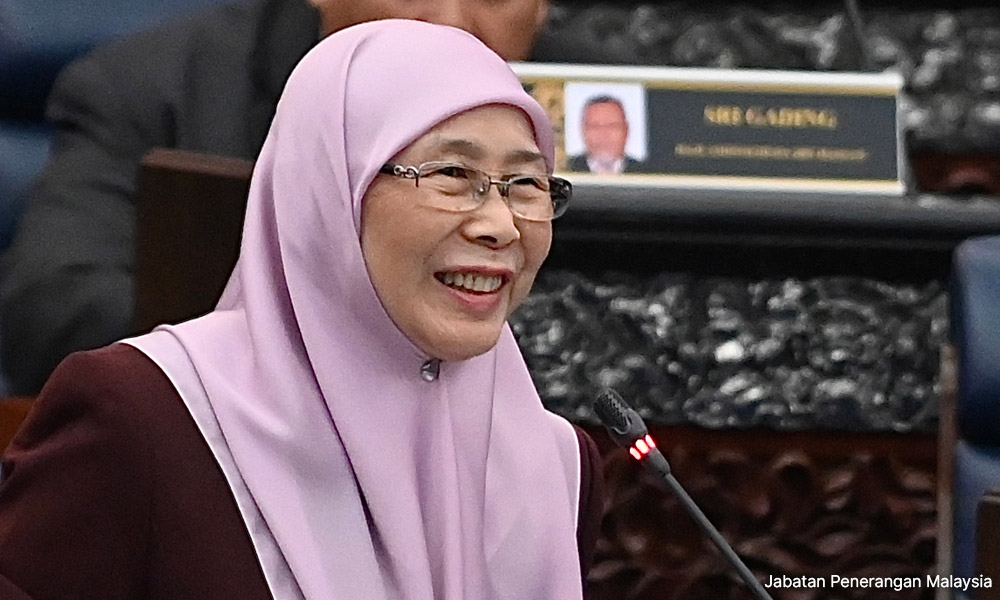
Malaysians should feel proud of her achievements.
My view is that she played a pivotal role in Malaysian politics, but often doesn’t get the recognition she deserves.
They were significant achievements for anyone, let alone a woman, who was able to combine family, practising as a medical doctor and politics.
Is there another Anwar book in the works?
Four books are probably enough, but who knows, Malaysian politics is so unpredictable, and anything can happen.
However, my hope for Malaysians is that their nation can thrive with an honest and stable government.
After so many years of turmoil, they deserve peace and prosperity. Malaysia needs proper governance and to restore its confidence in the future.
Anwar has his faults, but he offers the best choice forward. - FMT




No comments:
Post a Comment
Note: Only a member of this blog may post a comment.